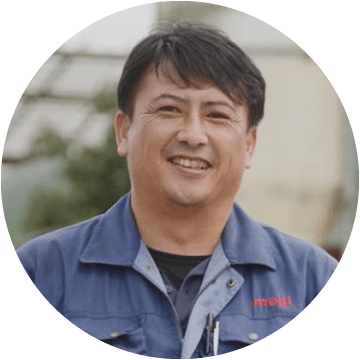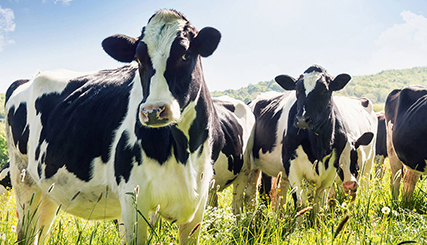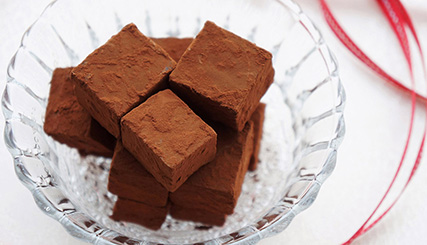Dairy is an indispensable part of our diet. With a wide range of products available, consumers have their own criteria—such as nutritional value, and taste—for deciding which products they purchase. Recently, a new selection criterion, environmental friendliness, is beginning to enter the decision-making process.
Cow manure and burps contain greenhouse gases (GHGs), which are closely linked to global warming. The Meiji Group wanted to work on reducing GHG emissions from dairy farming, an issue that has been identified as a concern in Japan but has not yet been properly addressed. We've teamed up with Ajinomoto Co., Inc., the world's leading maker of amino acids, to make dairy farming in Japan more sustainable.
Business model applying J-Credit, the Japanese government's carbon credits program
"Feces, urine, and burps are part of a cow's life. We must carefully consider any changes we make to cow feed that could affect those natural functions. We thought it was important to proceed in small steps," says Hiromitsu Amanuma, manager of supply chain team in the sustainability management department.
Cow burping gets a lot of attention, but manure actually contains nitrous oxide, which is one of the greenhouse gases and is estimated to have about 300 times the greenhouse effect of carbon dioxide.
The amount of nitrous oxide generated from cow manure increases in proportion to the amount of amino acids not absorbed into the body when ingested by cows as feed.
In 2023, the Meiji Group, in collaboration with Ajinomoto, began an initiative to reduce GHG emissions in dairy farming through the government's carbon credits program known as J-Credit*.
In this project, Ajinomoto sells AjiPro®-L, a lysine formulation for dairy cows developed independently by Ajinomoto, to Meiji Feed Co., Ltd. Meiji Feed provides AjiPro-L and meticulously developed recipes to its partner dairy farmers. Dairy farmers mix grass, corn, and other feed with AjiPro-L following the recipe and feed it to their cows, aiming to reduce GHG emissions. AjiPro-L provides lysine, an essential amino acid often lacking in dairy cow feed. Mixing AjiPro-L into feed improves amino acid balance and reduces the amount of nitrous oxide generated from cow manure.
AjiPro®-L, a lysine preparation for dairy cattle
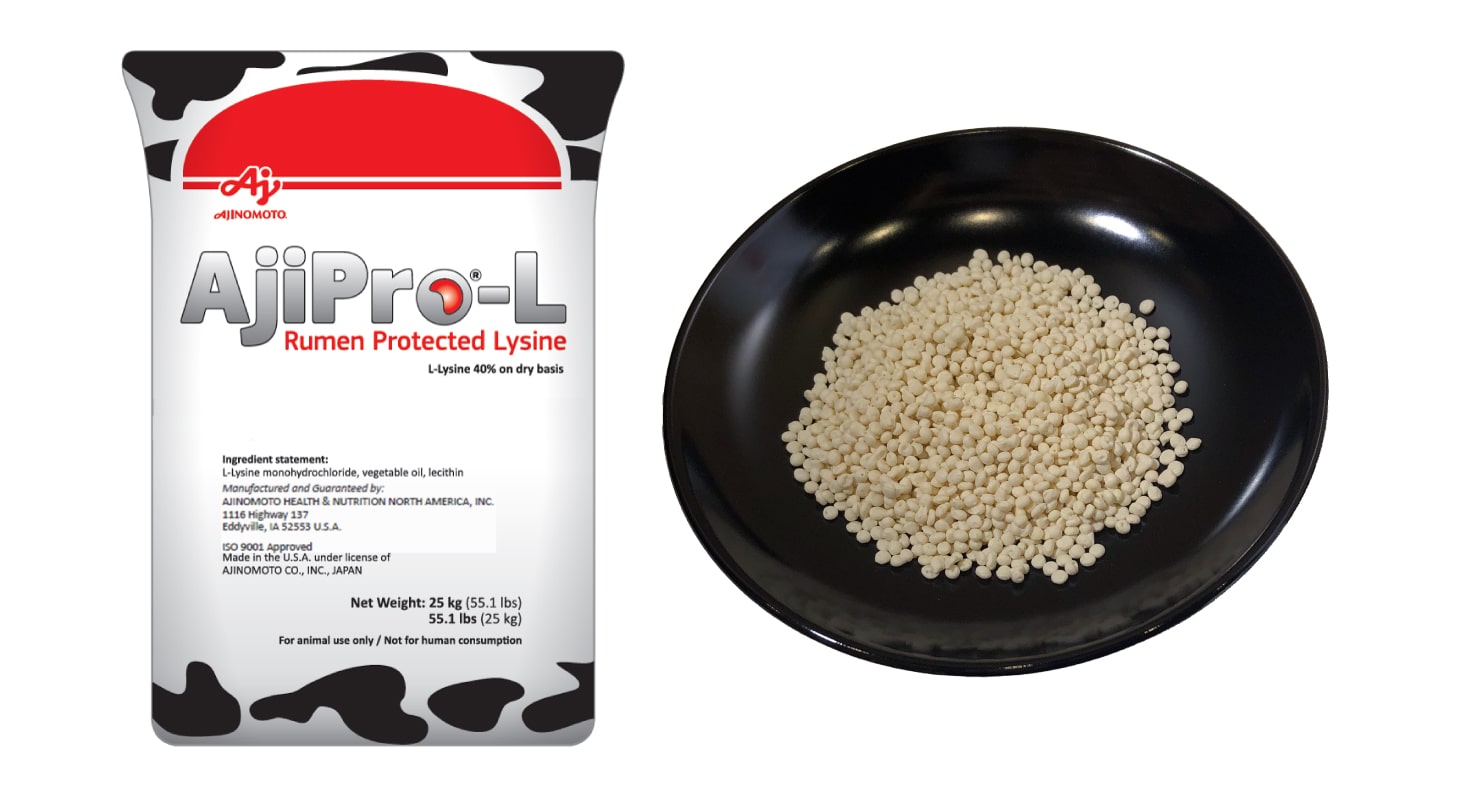
Source: Ajinomoto Co., Inc. website
In launching the initiative, we created a business model utilizing the J-Credit program. The Meiji Group purchases the credits generated from the reduction of emissions, and gives the proceeds to dairy farmers. The purchased credits are used to offset the Meiji Group's GHG emissions* and help reduce the GHG emissions of Japan's dairy industry.
This project has to be a win for everyone involved, including the cows. With this in mind, Meiji Group and Ajinomoto created the carbon credits business model. (Amanuma)
Business model utilizing the carbon credits program
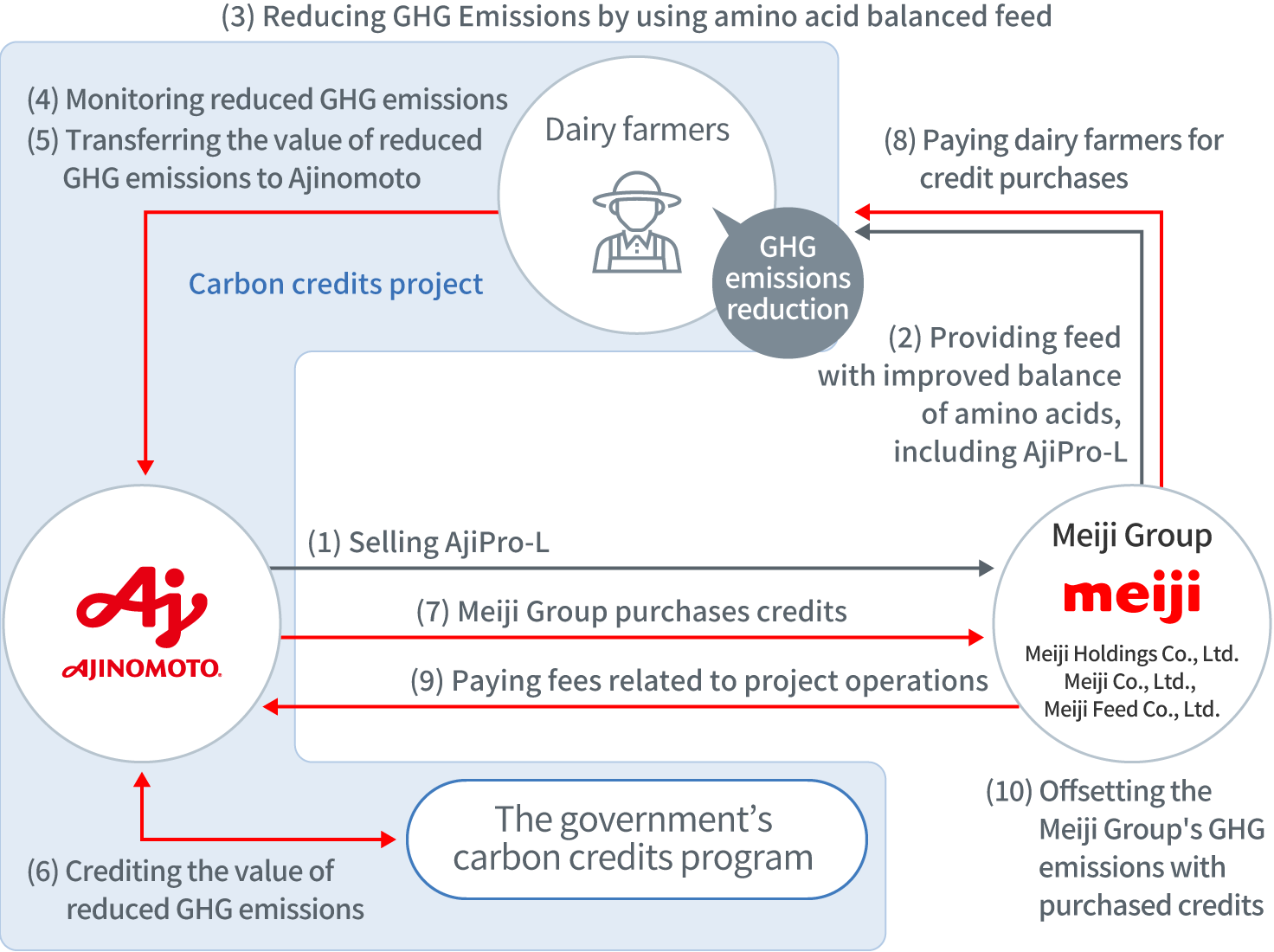
The important thing is the balance of feed
The challenge of the project was developing the feed recipe. Ajinomoto and Meiji Feed were required to create a well-balanced ration with AjiPro®-L, because feeding large amounts of AjiPro®-L alone to cows would result in overnutrition. Amanuma, who serves as a bridge between the two companies, says
Without well-balanced feed, cows' health and milk production would be affected. Ajinomoto and Meiji Feed worked together to coordinate the project, with the belief that feed recipe development was the key to the project's success.
Soybean meal, commonly used for general feed, is high in protein and cost. The feed formulated with AjiPro-L for this project can effectively deliver amino acids that normally wouldn't be absorbed into the cow's small intestine as nutrients, thereby maintaining sufficient milk yield while reducing the amount of soybean meal. Reducing excess amino acids results in less nitrogen generated from cow manure and lowers nitrous oxide emissions.
Lysine preparation with unique dissolution characteristics that dissolves in the intestine without being broken down in the first stomach
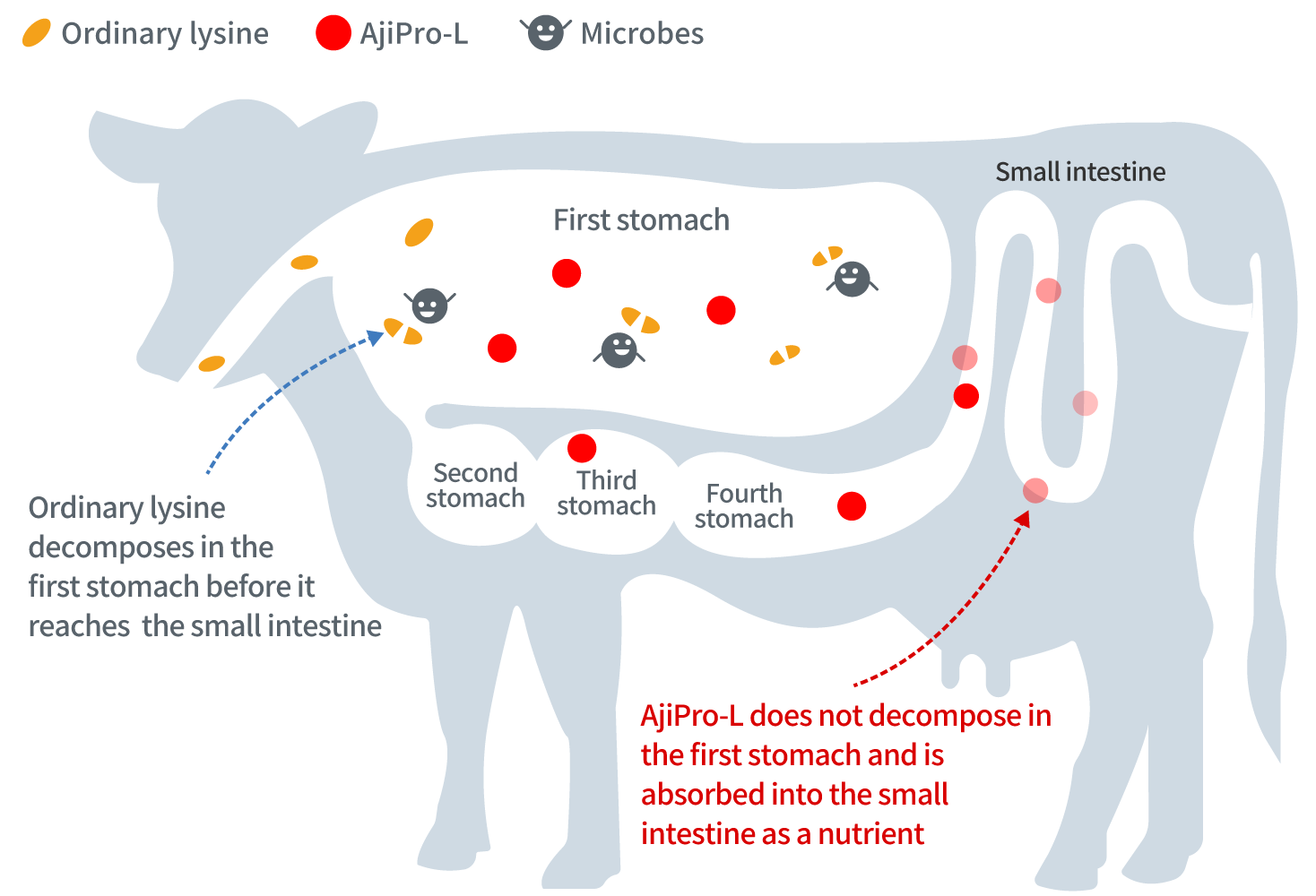
Enthusiasm drove the project
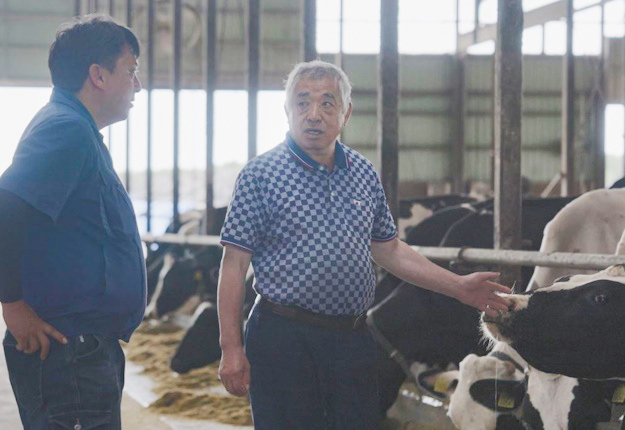
The start of the project was not smooth sailing. In general, sustainability initiatives such as GHG emissions reductions can be difficult to achieve because of costs. Both the Meiji Group and Ajinomoto, however, vowed to see the project through despite the obstacles. Amanuma had numerous discussions with Meiji Feed, dairy farmers, and the marketing department of Meiji Corporation to help them understand how the project would ultimately raise the value of milk. We eventually gained their trust and cooperation. In January 2023, the initiative was finally launched at Hokusho Farm in Nemuro, Hokkaido.
We achieved consensus because we have a shared passion for making the wonderful industry of dairy farming sustainable. (Amanuma)
Sustainable dairy farming adds value to final products in the coming era
Ikeshita says, "we would like to expand our cooperation beyond Hokusho Farms." We're gradually increasing the number of dairy farmers, companies, and organizations participating in this business model.
This is the first step toward achieving sustainable Japanese dairy farming. We will expand this business model to achieve more greenhouse gas reductions. (Ikeshita)
We are currently discussing the possibility of starting initiatives with new dairy farmers. We are also considering other ingredients that can reduce methane, which has an even greater impact on global warming than nitrous oxide. The initiative started by the Meiji Group, Ajinomoto, and Hokusho Farms is expanding its reach.
Amanuma also says, "we would like to increase the value of dairy farming as an industry by solving the challenges it faces, such as reducing GHG emissions, while increasing its sustainability and profitability." The products produced from initiatives to promote sustainability will have a new, added value: low carbon. Consumers will choose dairy products for this value. The Meiji Group will continue to work on sustainable dairy farming to create such a future.




